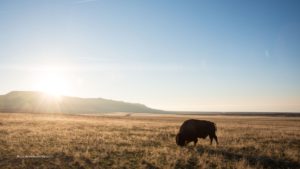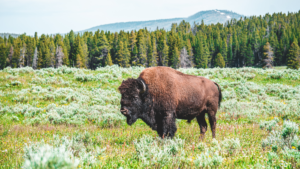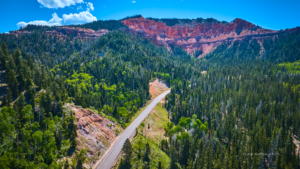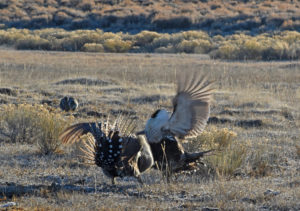For immediate release: April 30, 2024
MEDIA CONTACTS:
Greta Anderson, Western Watersheds Project, (520) 623-1878; greta@westernwatersheds.org
Chris Smith, WildEarth Guardians, (505) 395-6177, csmith@wildearthguardians.org
Regan Downey, Wolf Conservation Center, (914) 763-2373; regan@nywolf.org
Claire Musser, Grand Canyon Wolf Recovery Project (928) 202-1325; claire@gcwolfrecovery.org
DOUGLAS, Ariz. – The U.S. Fish and Wildlife Service’s translocated a Mexican gray wolf family back to the wild in southeastern Arizona on Monday, a move conservation groups are celebrating as a successful step in lobo recovery. The wolves, a female called “Llave” (#1828) and her mate, “Wonder” (#2774) were both originally born in the wild in the Mexican Wolf Experimental Population Area.
Both wolves were removed from the wild last fall with the intention that they would pair bond in captivity prior to translocation back in the home range on the border of New Mexico that Llave shared with her previous mate (#1582), who was killed in spring 2023. During the summer of 2023, she made several forays north of Interstate 10 but never found a male on her own, leading to her capture in the Peloncillo Mountains. Wonder was removed in November from the San Carlos Apache Reservation at the Tribe’s request. Both wolves spent the winter in captivity at Sevilleta National Wildlife Refuge near Albuquerque.
“We couldn’t be happier that the Service put these wolves back in the wild of the Sky Islands where Mexican gray wolves have lived for thousands of years,” said Greta Anderson, deputy director of Western Watersheds Project. “It’s fantastic news for the wolf program that we’ll have more breeding wolves in more places in Arizona, restoring native wildlife that are so key to healthy ecosystems.”
“Restoring these wolves to the wild is definitely worth celebrating,” said Chris Smith, southwest wildlife advocate for WildEarth Guardians. “The U.S. Fish and Wildlife Service would do well to release more bonded family packs of endangered lobos into the Southwest to help ease the genetic crisis this species is facing.”
“The re-release of Llave and Wonder is exhilarating, both for them and for lobo supporters across the country,” said Regan Downey, director of education at the Wolf Conservation Center. “Llave was named by an impassioned youth advocate who hopes that one day all lobos will roam wild landscapes – let’s make her dreams come true.”
###






